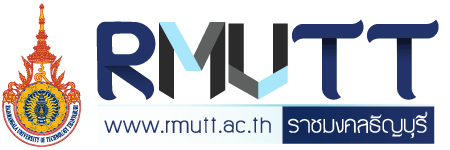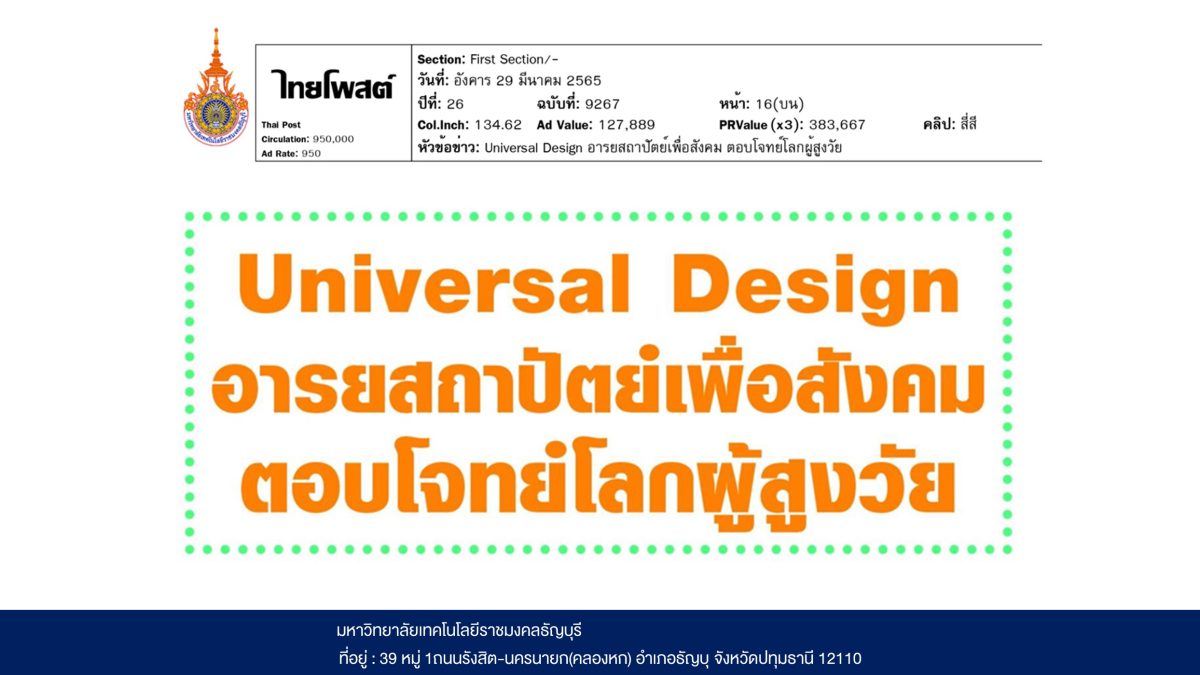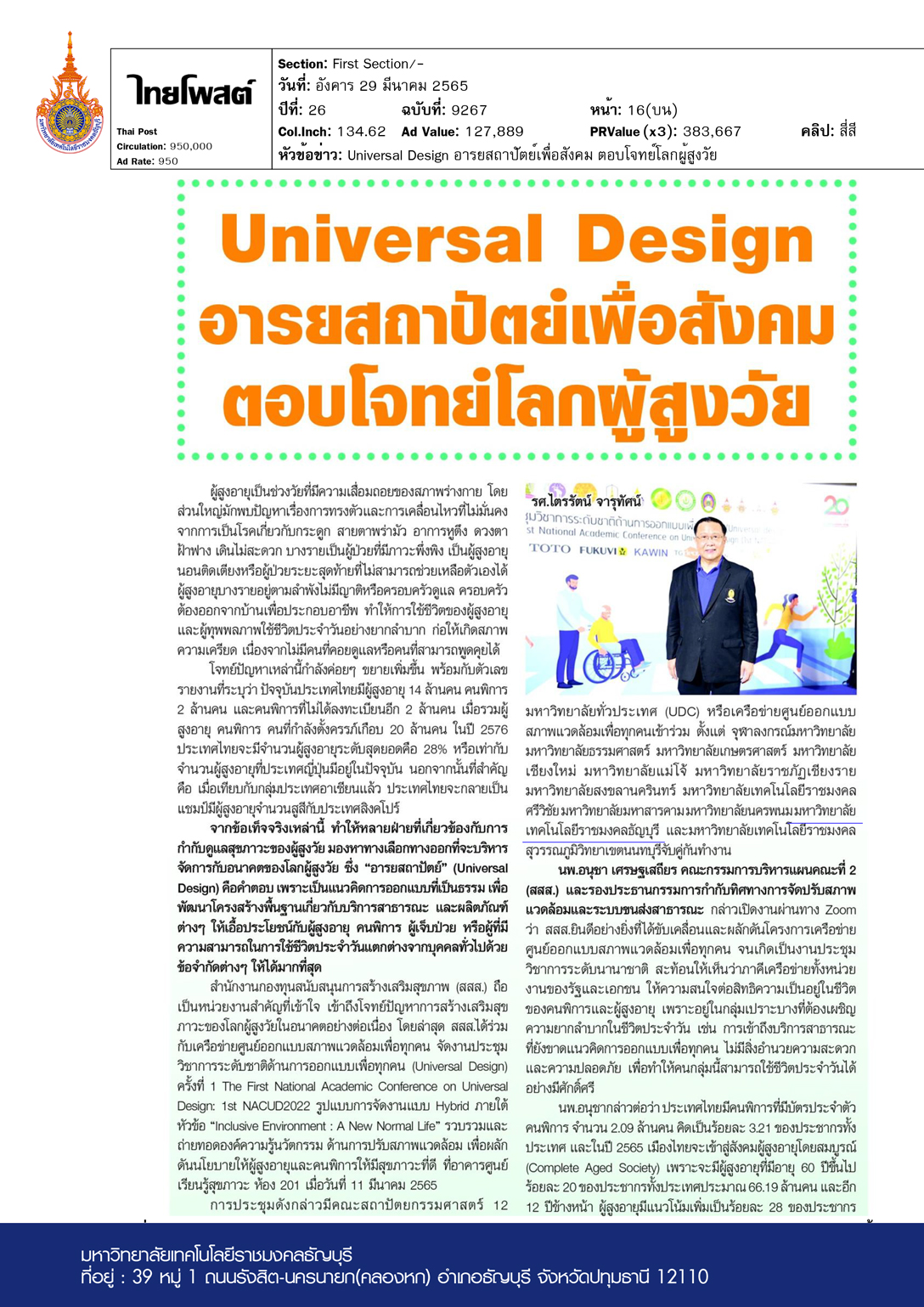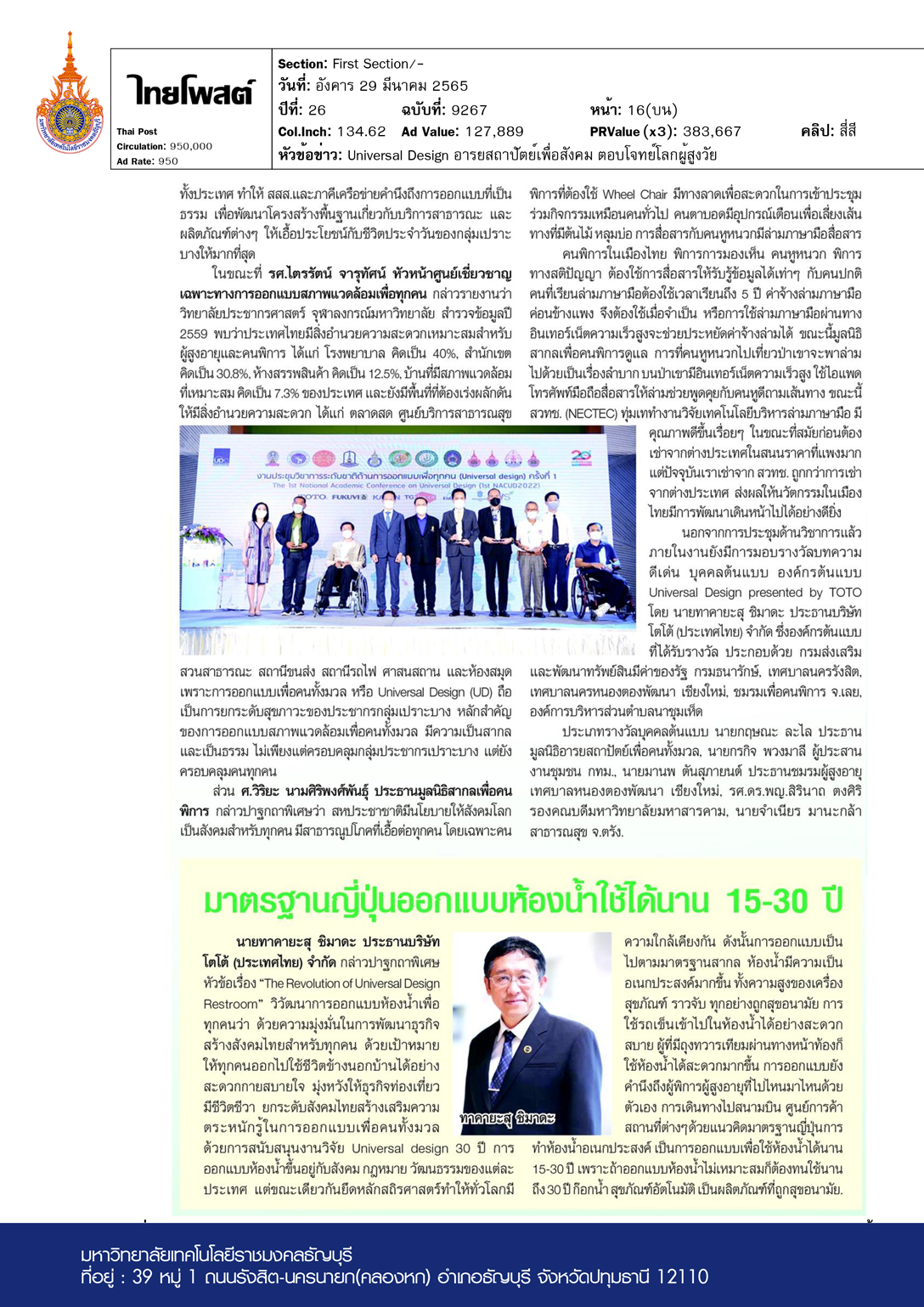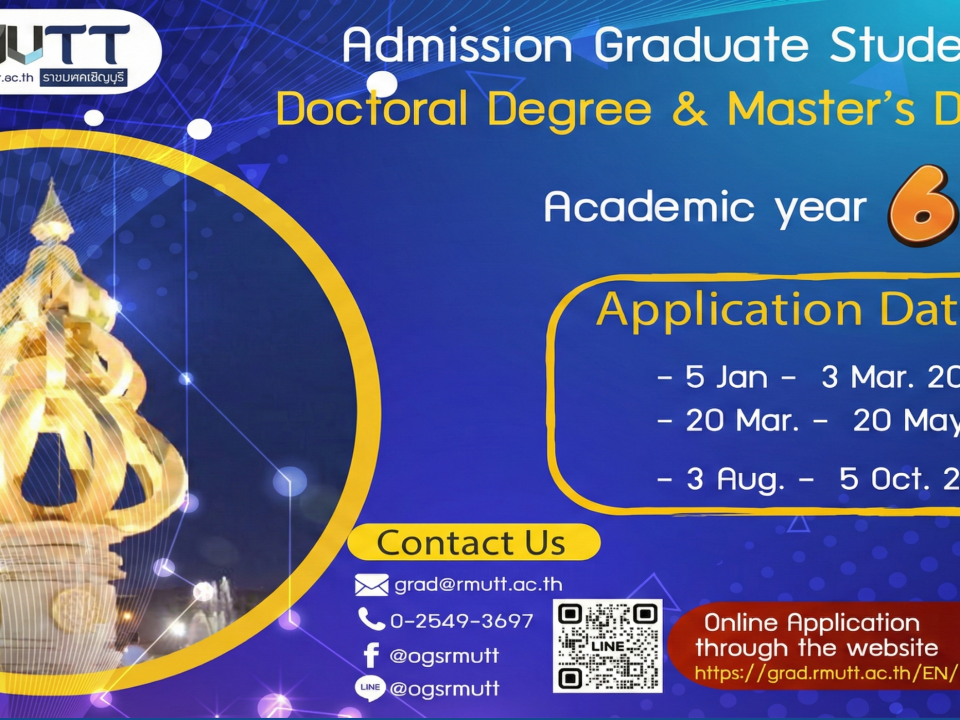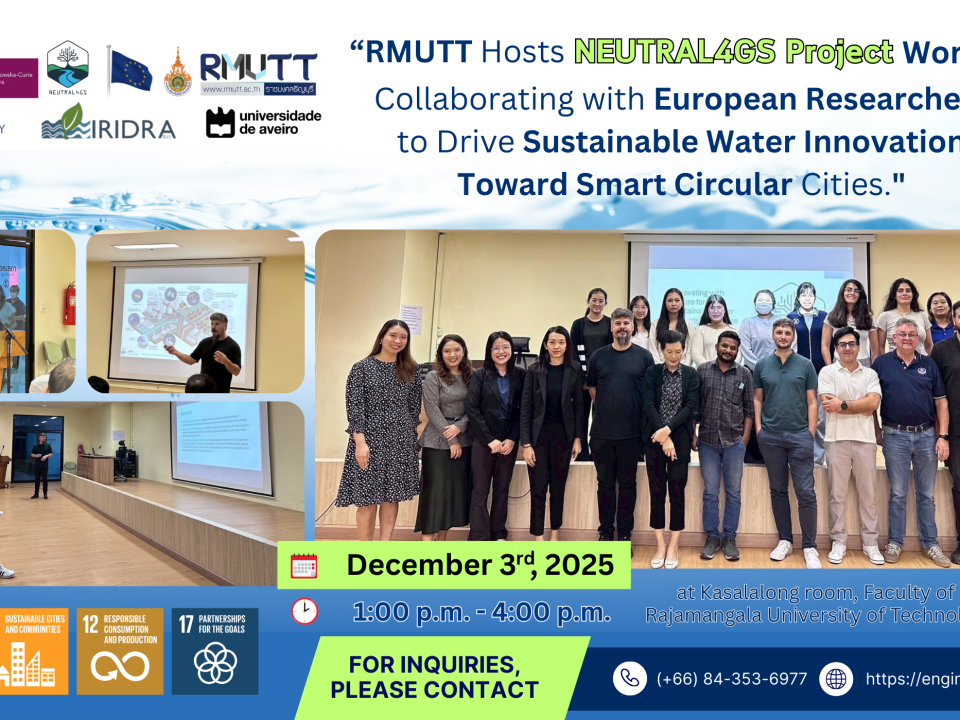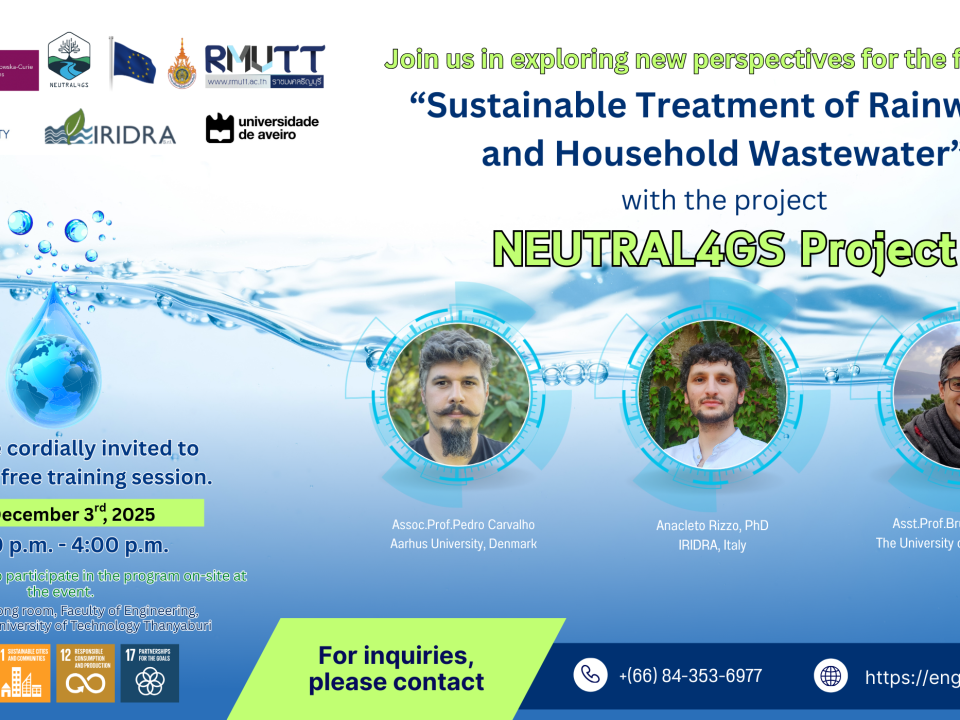
Universal Design: The Answer for Elderly
29/03/2022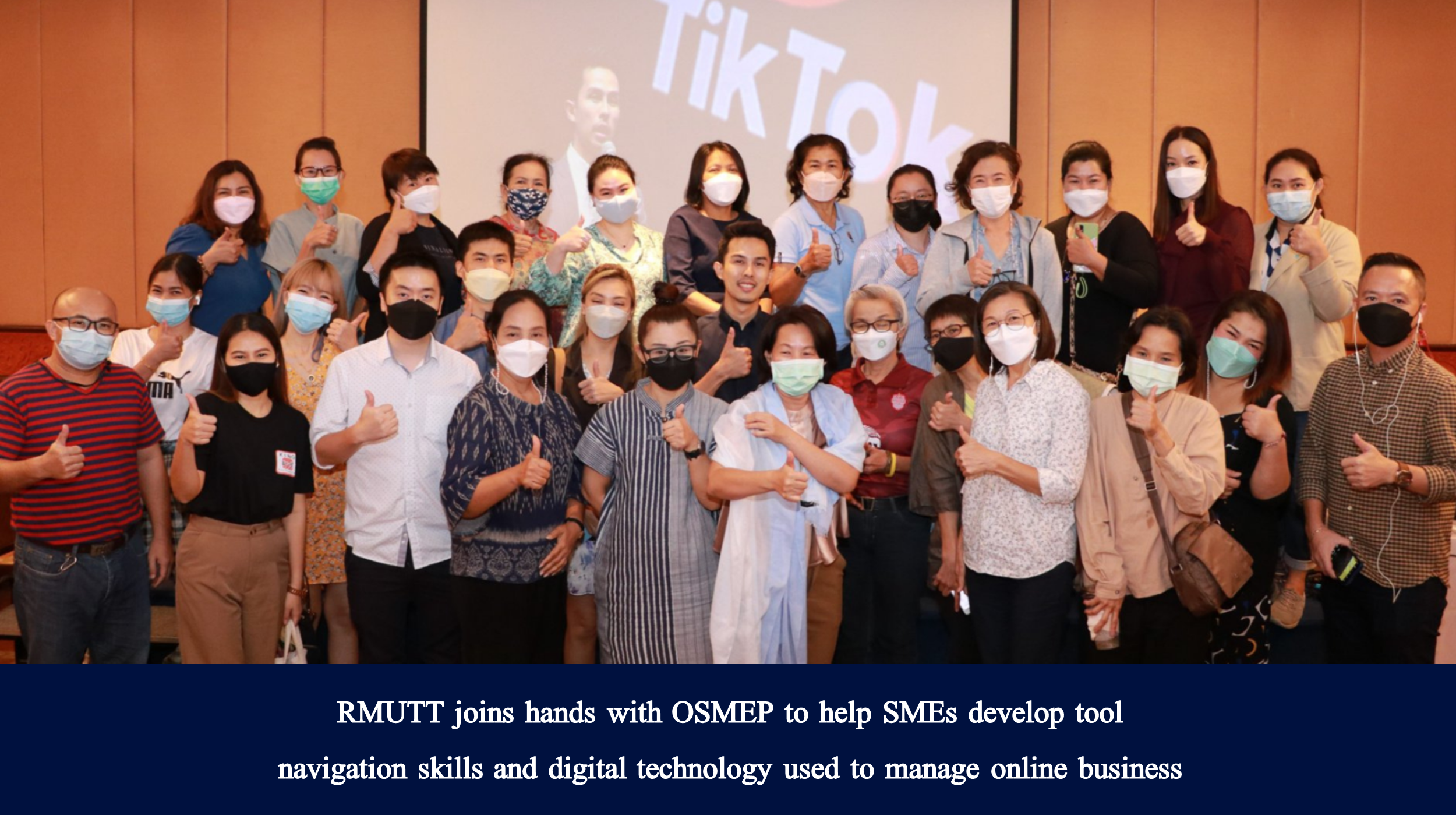
RMUTT joins hands with OSMEP to assist SMEs acquire and integrate knowledge on Digital Technology and Tools for Online Business
30/03/2022Thai Post edition, dated March 29, 2022.
Older adults are in a life stage that often encounters deterioration of physical health, primarily showing balance and mobility issues due to bone-related diseases, blurred vision, hearing impairments, and difficulty walking. Some seniors are bedridden or in end-of-life care and are unable to care for themselves. There are also seniors who live alone without relatives or family to look after them, which can make it challenging for these individuals to navigate their daily lives and can lead to stress due to lack of care or social interaction.
These problems are gradually increasing along with reports indicating that Thailand currently has an elderly population of 14 million people, 2 million disabled people, and an additional 2 million unregistered disabled persons. Including pregnant women, there are nearly 20 million individuals with varying degrees of daily living capacity. By the year 2083, Thailand will have a senior population of 28%, which is equivalent to the current elderly population of Japan. Moreover, compared to ASEAN countries, Thailand is projected to rank alongside Singapore with the highest number of elderly people.
In light of these facts, many parties involved in overseeing the health and wellbeing of the elderly are seeking solutions for managing the future of an aging world. Universal Design has emerged as an answer to this challenge. It is a fair design concept aimed at developing public infrastructure and products to accommodate the elderly, the disabled, the ill, or anyone whose daily living abilities differ significantly from the general population, with the goal of maximizing their quality of life and ensuring inclusivity.
The Thai Health Promotion Foundation (ThaiHealth), an important organization that comprehends and addresses the issues regarding the promotion of health and well-being among the aging population, has been proactive in this regard. Recently, ThaiHealth collaborated with the Environmental Design for All Network to organize the inaugural national academic conference on Universal Design, termed the 1st NACUD2022. Held on March 11, 2022, in a hybrid format at the Health Learning Center, Room 201, the event carried the theme “Inclusive Environment: A New Normal Life” and aimed to disseminate knowledge and innovation in environmental adjustments to promote better health conditions for the elderly and people with disabilities.
The conference boasted participation from the architectural faculties of 12 universities across the country, which form the Environmental Design for All Network (UDC). These include prestigious institutions from Chulalongkorn University to Rajamangala University of Technology Thanyaburi, working in tandem on various projects.
Dr. Anucha Sethasuwan, the Plan 2 executive committee member at ThaiHealth and the vice-chairman for overseeing the adjustment of the environment and public transportation systems, opened the event via Zoom. He expressed ThaiHealth’s eagerness to drive and propel the Environmental Design for All Network project, highlighting that it has culminated in an international academic conference. It reflects the interest of network partners, both governmental and private, in the rights and quality of life of persons with disabilities and the elderly, who are a vulnerable group facing daily challenges, such as limited access to public services, lacking universal design concepts, convenience, and safety.
Dr. Anucha emphasized that Thailand has 2.09 million people with disability IDs, accounting for 3.21% of the entire population. By 2022, Thailand will have entered a Complete Aged Society, with the elderly population aged 60 and over making up 20% of the total population of about 66.19 million people. Further, he underlined that within the next 12 years, the elderly population is expected to increase to 28% of the total national population, compelling ThaiHealth and its partners to focus on just design and the development of public service infrastructure and various products to maximize the benefits for the daily lives of the vulnerable groups.
Assoc. Prof. Traitip Jarurat from the College of Population Studies, Chulalongkorn University, revealed data from a 2016 survey indicating that in Thailand, only 40% of facilities are suitable for the elderly and people with disabilities in hospitals, 30.8% in district offices, 12.5% in shopping malls, and 7.3% in residential homes. The study points out the need for improvements in public markets, public health service centers, public parks, transportation stations, train stations, religious places, and libraries to make them more accessible. Universal design is about giving importance to the health of the vulnerable population, reflecting principles of universality and justice, and being inclusive of all groups of people.
“Professor Wiriya Namsiripongpun, the chairman of the International Foundation for Disabled People, said in a special lecture that the United Nations has policies to make the global society inclusive for everyone, providing public utilities that facilitate access for all, especially for the disabled who need to use wheelchairs. There are ramps for easy access to meetings and participation in activities like everyone else. The blind have warning devices to avoid paths with trees and potholes, while communication with the deaf involves sign language interpreters.
Disabled people in Thailand, including those with visual impairments, the deaf, and those with intellectual disabilities, need to communicate and receive information as much as able-bodied individuals. Those who study sign language interpretation need up to five years of training, and the cost of hiring interpreters is quite high, so they are used only when necessary, or using sign language interpreters through high-speed internet can help save on costs. Currently, the International Foundation for Disabled People looks after the situation where deaf people going on jungle treks face difficulty bringing interpreters with them, but with high-speed internet in the mountains, iPads and mobile phones can be used for interpreters to assist in communicating with hearing people and asking for directions. At this time, NECTEC (National Electronics and Computer Technology Center) is dedicated to the research and development of sign language interpreter management technology, which is continuously improving. In the past, we had to rent these services from overseas at very high prices, but now renting from NECTEC is cheaper than from abroad, which has led to innovation and forward development in Thailand.”
The conversation centered on an academic gathering where attendees discussed and recognized achievements in academia, with a specific focus on Universal Design. The event highlighted the impactful work of individuals and organizations that have promoted inclusivity in society through their designs and initiatives.
TOTO (Thailand) Co., Ltd. was honored with an award for embracing Universal Design principles to create environments accessible to people of all abilities. The company stood alongside other government entities, municipalities, and advocacy organizations in receiving this commendation.
Mr. Takayasu Shimada, the President of TOTO (Thailand) Co., Ltd., delivered an insightful lecture titled “The Revolution of Universal Design Restroom.” He discussed the transformative impact of well-designed restrooms that adhere to high standards of sustainability and inclusivity, which, in TOTO’s case, are informed by Japanese industry benchmarks recognized worldwide.The criteria for commendable Universal Design in restrooms include considerations for the elderly and individuals with disabilities, emphasizing safety, health, and longevity ranging from 15 to 30 years. The discourse reaffirmed that excellent design transcends mere aesthetic appeal, playing a crucial role in enhancing the quality of life.
